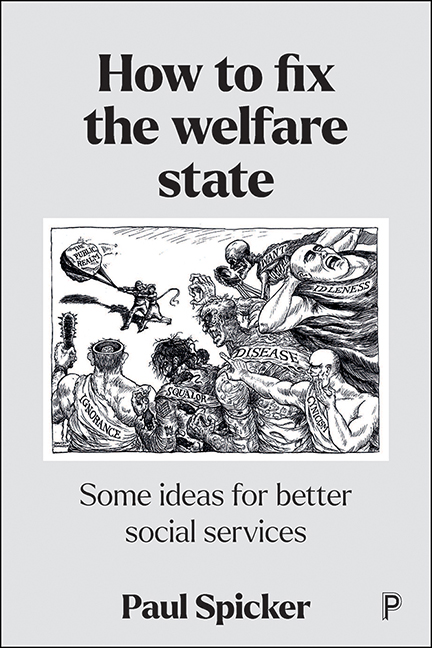Book contents
Summary
Social security benefits cover a huge range of different circumstances. The most important are pensions, provision for disability, meeting housing costs and helping people on low incomes, but there are lots of others. In some minds, benefits are there to save people from poverty, but that is only true of some benefits, and not the largest part. Other benefits are there to help people meet personal needs, some to protect people undergoing major changes, and some to support specific activities such as child care and social care. There are many possible objectives: for example, meeting needs, responding to emergencies, economic management, compensation, redistribution and social inclusion.
Most of the services that I will be discussing in this book operate by providing people with something – for example, medical care, housing or schooling. Social security, by contrast, is paid in cash, rather than in kind. That means it is not like other social services. It works by transferring money to people to spend, and the things they buy – such as food, fuel and clothing – are then up to them. It follows that benefit recipients are expected to use the money to buy things from commercial providers. Social security is not a way of making public provision: it is a way of enabling people to pay for private provision. Some political commentators, the radical right or ‘neoliberals’, believe that commercial markets are a much better way of managing resources than public provision of goods and services can ever be. I will be examining some other aspects of those arguments in due course, but for present purposes I want only to note the relationship of that position to social security policy. It is implicit in any call for better social security that the market is expected to provide – and so, that commercial markets work. If people are short of food – many people are – that is usually taken to be an argument for getting them more money, not for bigger food banks.
The right-wing argument for market-based provision is not an argument for services to be cut, though that often overshadows anything else the neoliberals have to say. It is an argument for social security to be paid instead of providing social services.
- Type
- Chapter
- Information
- How to Fix the Welfare StateSome Ideas for Better Social Services, pp. 12 - 25Publisher: Bristol University PressPrint publication year: 2022



